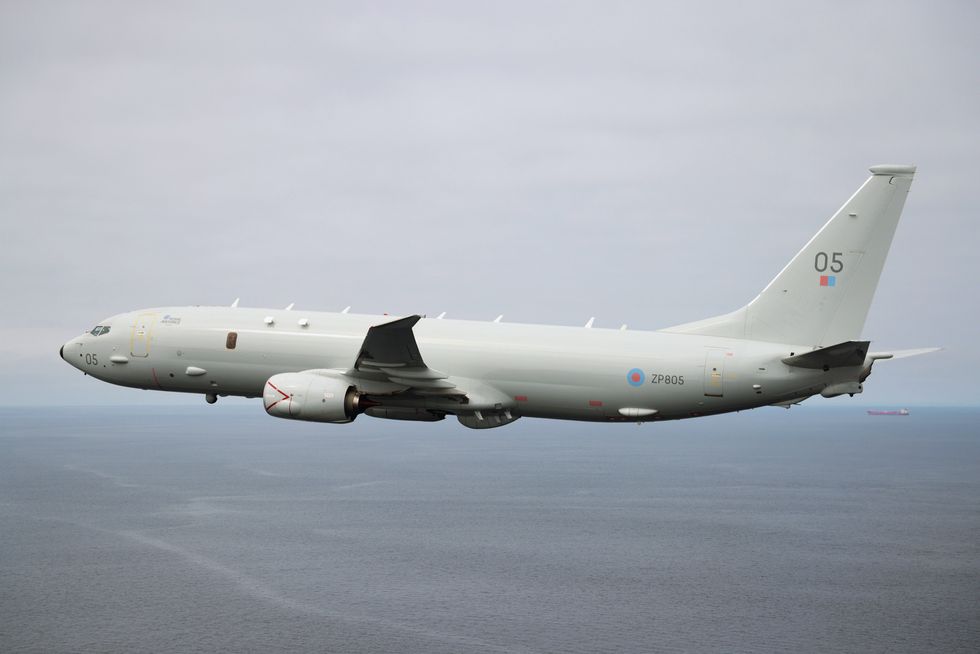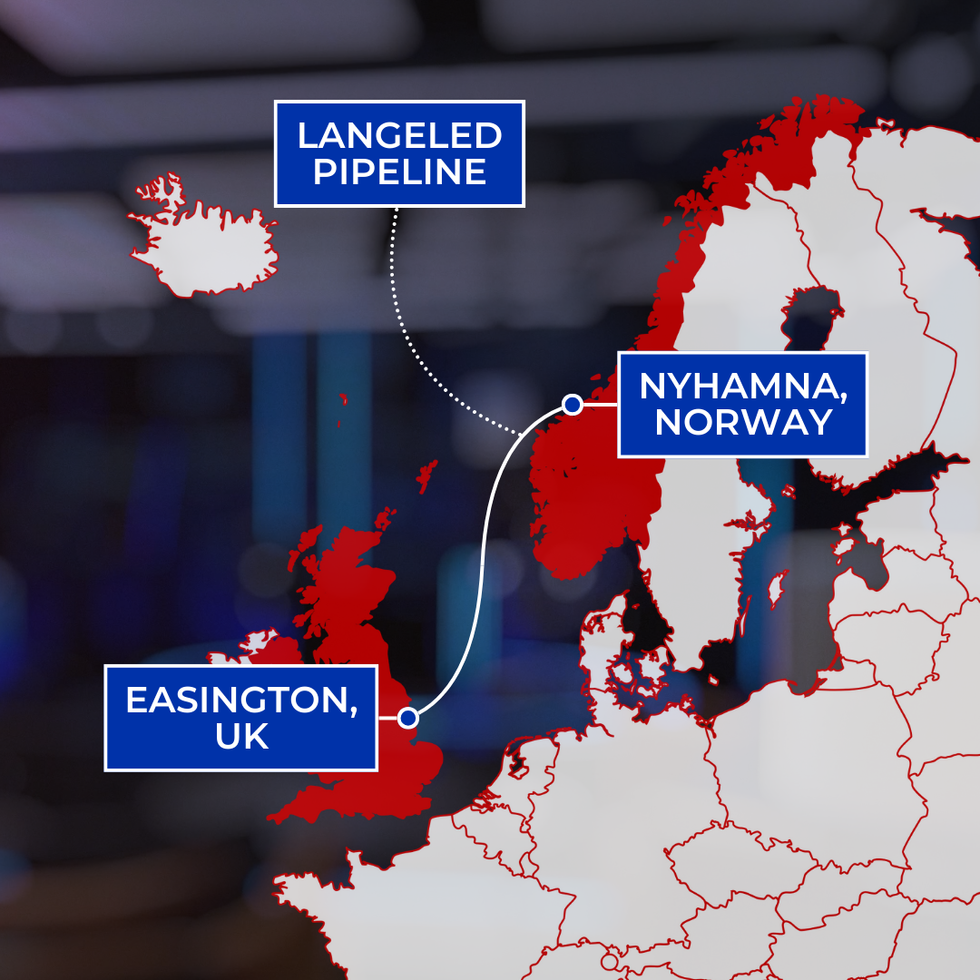Britain’s key gas pipelines under threat by Putin as RAF on alert
Britain has been forced to step up its surveillance over the North Sea amid fears Vladimir Putin’s Russia could sabotage a key gas pipeline.
The Royal Air Force has already started ramping up its surveillance and monitoring of waters between Norway and the UK, Whitehall sources have said, with a squadron of US aircraft joining British counterparts in a post-Cold War first.
The RAF now boasts nine Poseidon P-8 marine surveillance and anti-submarine aircraft at Lossiemouth in eastern Scotland.
Nine American P-8s joined the UK’s force there around three weeks ago – marking the first time since the Cold War that US planes have had a presence in Scotland.

The aircraft are used for a range of surveillance purposes, and can monitor ships, submarines and radio traffic.
Meanwhile, British Government security experts have been briefing energy executives on emerging threats to the industry, not least following a potential pipeline sabotage a couple of weeks ago.
“Russia is systematically attacking European security architecture,” the foreign ministers of the UK, France, Germany, Italy and Poland said in a joint statement after two fibre-optic cables under the Baltic Sea were “sabotaged” in late November.
“Moscow’s escalating hybrid activities against Nato and EU countries are also unprecedented in their variety and scale, creating significant security risks,” they added.
MORE ON THE RUSSIAN THREAT:
- Putin forcing ‘stretched’ MI5 to prioritise Russia over terrorists
- Putin’s troops would DESTROY British Army in just a year of war, minister warns
- UK military chief warns ‘third nuclear age is upon us’ as Russian attack a ‘remote chance’

Officials are concerned that Putin-backed saboteurs could seek to target pipelines carrying some 42 per cent of Britain’s entire gas supply.
Gassco, the Norwegian state-owned firm which owns the pipelines running to Britain, has called for “increased vigilance” and announced that “further measures have been implemented to protect Norwegian infrastructure” in the North Sea.
The most important of the UK-Norwegian pipelines is the 1,116km-long Langeled pipeline, which runs from the Nyhamna gas processing plant in western Norway to the Easington gas terminal in County Durham.
The pipeline carries as much as 26 billion cubic metres of gas to the UK each year – over a third of what Britain consumes every year.

Langeled is just 44 inches across, and transports huge amounts of highly-pressurised gas, meaning any rupture would doubtless cause devastating damage.
If the key pipeline were put out of action, Britain would have to rely on shipped-in liquefied natural gas or imports via other pipelines from Europe – and since none carry as much gas as Langeled, a sabotage would likely trigger an energy crisis.
With security concerns in mind, Energy Secretary Ed Miliband has already ordered that Easington and other key UK gas terminals be policed by the Civil Nuclear Constabulary (CNC) in just a few months.
The CNC will be brought in on April 1, 2025, under Miliband’s plans, while job adverts in September indicated the force was recruiting new officers to protect terminals in St Fergus, Easington, and Bacton.

